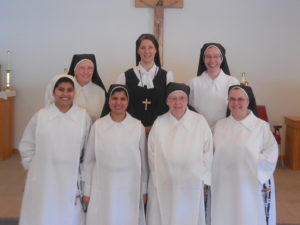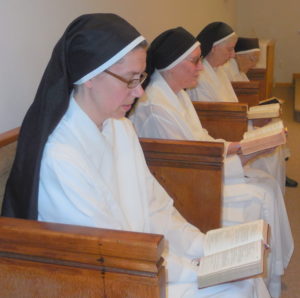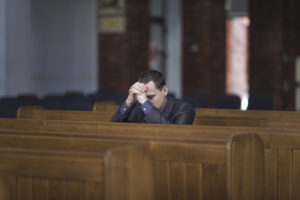 The IRL is very delighted to welcome a new affiliate: The Dominicans Nuns of Our Lady of Mount Thabor Monastery in Ortonville, Michigan (Archdiocese of Detroit). The contemplative community lives the joy-filled monastic life of prayer, work, silence, and study… all for the sanctification of souls!
The IRL is very delighted to welcome a new affiliate: The Dominicans Nuns of Our Lady of Mount Thabor Monastery in Ortonville, Michigan (Archdiocese of Detroit). The contemplative community lives the joy-filled monastic life of prayer, work, silence, and study… all for the sanctification of souls!

The foundation of the Monastery began in 1969 when two nuns, Sister Mary Martin, O.P. and Sister Anne Mary, O.P. received permission to leave the Dominican Sisters of the Perpetual Rosary Monastery (Blue Chapel) in Union City, NJ, to establish a new contemplative mode of life within the monastic setting. Remaining faithful to the essentials of monasticism, they eventually found a home in Detroit at the invitation of John Francis Cardinal Dearden. In August of 1973, they moved into their current location in Ortonville, in rural Oakland County. Their foundation day is August 6, 1973, the feast of the Transfiguration of Jesus Christ on Mt. Thabor. The community received its letter of aggregation into the Dominican Order in 1999.

Their daily schedule focuses on the Divine Office (Liturgy of the Hours), which they sing or chant together in chapel. The Holy Sacrifice of the Mass is celebrated daily and is the center of their contemplative life. Profound silence is observed from after Compline until after Morning Prayer. Their habit is a simple white tunic, black veil, leather belt with rosary attached, and scapular.
The community is self-supporting and does remunerative work for its self- sufficiency. Sewing services are offered by the Sisters including the making and alteration of Dominican habits as well as the sale of Dominican Third Order Scapulars. They also maintain Transfiguration Retreat House where faithful may come for a private retreat. The intellectual life is nourished through reading, research, and study. This strong charism of the Dominican Order is never neglected.










